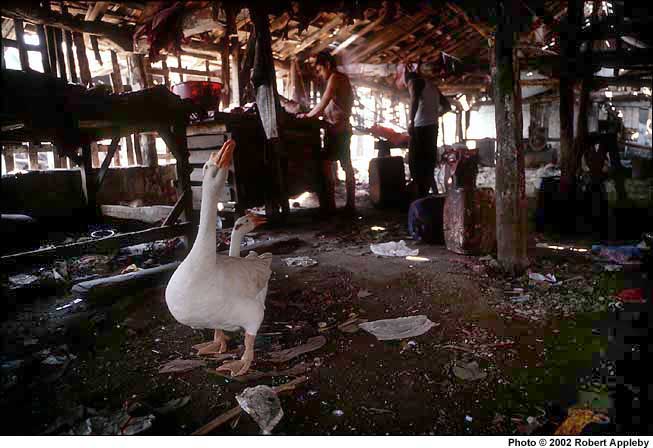|
A
pair of forty year old geese guard the entrance to a tannery godown
in Chamra Bazar, the muslim tannery quarter on Dharavi Main Road.
This is one of the oldest industries in the slum, as the Bombay slaughter
houses were originally sited here on the edge of the Creek, and the
Johnson&Johnson works which manufactures surgical catgut is visible
over its compound wall.
The boss isn't in, but we take a look around while waiting for him
to arrive. The godown is a large wooden-roofed structure with tanning
ponds, dyeing barrels and many other leather processing areas, but
not much is going on. The boss eventually arrives on his motorbike
in a heavy downpour and invites us into his office. "Take as
many pictures as you like" he says at once, "but I don't
want you quoting me". After a bit, however, he opens up.
"You see, the tannery business is dead. Not dying, dead. The
Municipality has moved the slaughterhouses onto the mainland and we
are not allowed to tan leather here in Bombay anymore, so our business
is dead. Now we just rent out the space and machinery to small processing
outfits who finish tanned skins from Madras, Jaipur, everywhere but
Bombay." In one of the bizarre moves typical of Indian burocracy,
tanning Bombay skins is banned - evidently the state import taxes
on leather and skins are lucrative.
"Now, this business is banned south of the Creek. We have been
allotted land in Chembur (in North Bombay) but that has already been
occupied by squatters. What can we do! Everything is here, the workshops,
the leather goods shops, the labour. Everything except for work."
|
